By Diane Seely, New Parent Support Coordinator
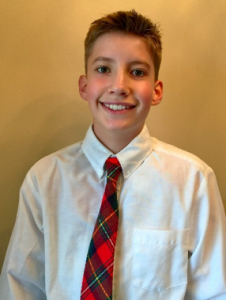
Snips and snails and puppy dog tails… sugar and spice and everything nice…
Parenting is hard work. It’s heart wrenching, overwhelming and joyful all at once. Lately I’ve been pondering whether raising a son with Prader-Willi Syndrome is more difficult than raising a daughter with PWS? The frustration with raising girls – fashion sense, social media navigation and Oh, the DRAMA!
Then there’s the big whammy: body image and self-esteem. Moms especially need to be aware of how you view your own body. What message are you sending about your body image, diet and exercise?
If we are to teach them to listen to their body’s signals and satiety… how in the world do we approach this with the complexity of Prader-Willi Syndrome thrown in the mix?
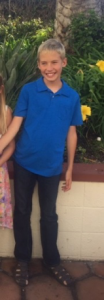
Raising boys typically comes with a fair amount of stereotyping – boys are supposed to be rambunctious and aggressive. Wrestling with dad, taking risks, playing sports and of course playing video games. Body image isn’t such a big issue, but physical activity is a challenge for a boy with Prader-Willi Syndrome. As parents, our job is to provide plenty of opportunities to try out different activities to find the one that motives them enough to want to practice three times a week. So, how do we encourage them when they begin to recognize the differences from their peers; when the light bulb goes on and they realize: “I may not ever be as good at sports as my friends are” because PWS definitely puts limits on their physical abilities.
Every child is an individual, of course. Personality, genetics (remember that they have the rest of your genetic makeup as well). It’s also true that gender plays a key role – their brains are “wired” differently. The developmental differences that accompany PWS spill over to the social arena. Girls are more prone to share their feelings and take risks putting themselves out there to nurture a friendship. Take a child that already doesn’t quite understand how to pick up on social cues, facial expression or tone of voice; it tends to appear that they aren’t really interested in a deeper friendship. I often say that it’s so much harder for boys to develop and hold onto friendships.

“It’s so interesting; I’ve always been so happy that Oscar is a boy” says Mary Hill, the mother of a teenage boy with PWS. “He had both boys and girls that befriended him very early on (and a couple of those boys now serve as “teen-hangers”…kids who enjoy spending time with him watching sports and playing games, but also understand PWS and how to manage his food and anxiety). He’s also an avid sports fan and has several friends with whom he chats about baseball and basketball. He definitely cannot keep up with typical peers physically, but he plays challenger baseball so he feels a part of things. It’s hard to say how it would be to raise a girl with PWS, but Oscar’s friends, both the boys and the Oscar girls, tend to be laid back and inclusive and not so worried about his awkward gait, his stuttering, his slow-processing or his tendency to always wear orange.”
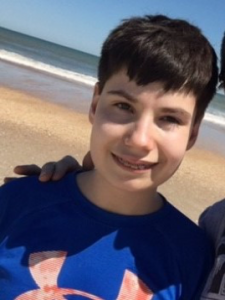
The bottom line is we can’t try to force our children into a mold based on gender, maturity or a disability. We can ping pong back and forth all day long on the debate; the take-away is that we have to raise our children is such a way that dissolves the tough guy images for boys and the false illusion that girls are smarter than boys, and the perception that a child with a disability can’t be successful.
As a mother of a typical son and a son with PWS – I have taught them that there is no shame in showing emotion, other than anger – and that it’s ok to talk about it – it doesn’t make them less masculine. They have figured out the meaning of identity, belonging and what it means to be interesting – and it has nothing to do with conforming to the rules of what others say, think or what the textbooks say. Nor does it mean growing up to fulfill my wishes or my dreams.
“Don’t ask him to live in your world…visit his world instead.”
~ Anonymous


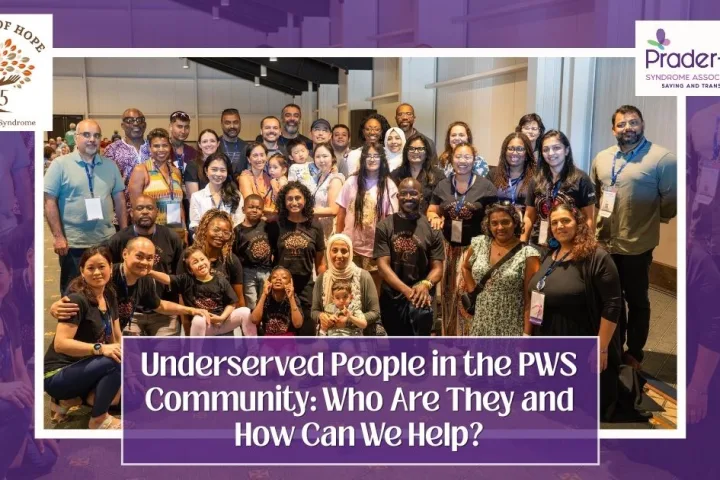
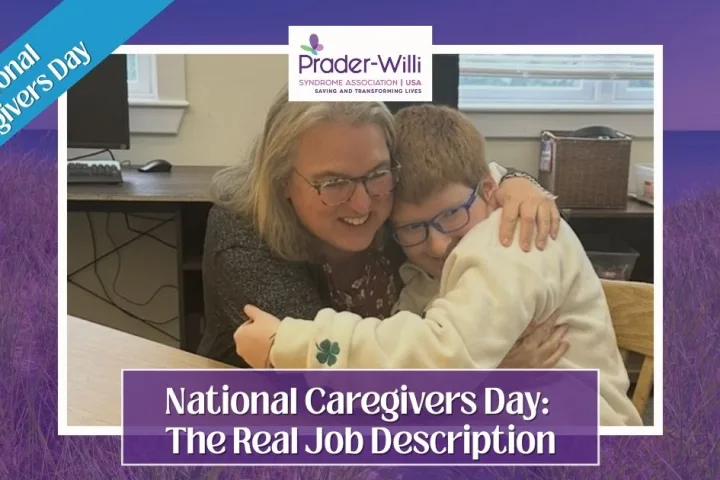

 Perry A. Zirkel has written more than 1,500 publications on various aspects of school law, with an emphasis on legal issues in special education. He writes a regular column for NAESP’s Principal magazine and NASP’s Communiqué newsletter, and he did so previously for Phi Delta Kappan and Teaching Exceptional Children.
Perry A. Zirkel has written more than 1,500 publications on various aspects of school law, with an emphasis on legal issues in special education. He writes a regular column for NAESP’s Principal magazine and NASP’s Communiqué newsletter, and he did so previously for Phi Delta Kappan and Teaching Exceptional Children. Jennifer Bolander has been serving as a Special Education Specialist for PWSA (USA) since October of 2015. She is a graduate of John Carroll University and lives in Ohio with her husband Brad and daughters Kate (17), and Sophia (13) who was born with PWS.
Jennifer Bolander has been serving as a Special Education Specialist for PWSA (USA) since October of 2015. She is a graduate of John Carroll University and lives in Ohio with her husband Brad and daughters Kate (17), and Sophia (13) who was born with PWS. Dr. Amy McTighe is the PWS Program Manager and Inpatient Teacher at the Center for Prader-Willi Syndrome at the Children’s Institute of Pittsburgh. She graduated from Duquesne University receiving her Bachelor’s and Master’s degree in Education with a focus on elementary education, special education, and language arts.
Dr. Amy McTighe is the PWS Program Manager and Inpatient Teacher at the Center for Prader-Willi Syndrome at the Children’s Institute of Pittsburgh. She graduated from Duquesne University receiving her Bachelor’s and Master’s degree in Education with a focus on elementary education, special education, and language arts. Evan has worked with the Prader-Willi Syndrome Association (USA) since 2007 primarily as a Crisis Intervention and Family Support Counselor. Evans works with parents and schools to foster strong collaborative relationships and appropriate educational environments for students with PWS.
Evan has worked with the Prader-Willi Syndrome Association (USA) since 2007 primarily as a Crisis Intervention and Family Support Counselor. Evans works with parents and schools to foster strong collaborative relationships and appropriate educational environments for students with PWS. Staci Zimmerman works for Prader-Willi Syndrome Association of Colorado as an Individualized Education Program (IEP) consultant. Staci collaborates with the PWS multi-disciplinary clinic at the Children’s Hospital in Denver supporting families and school districts around the United States with their child’s Individual Educational Plan.
Staci Zimmerman works for Prader-Willi Syndrome Association of Colorado as an Individualized Education Program (IEP) consultant. Staci collaborates with the PWS multi-disciplinary clinic at the Children’s Hospital in Denver supporting families and school districts around the United States with their child’s Individual Educational Plan. Founded in 2001, SDLC is a non-profit legal services organization dedicated to protecting and advancing the legal rights of people with disabilities throughout the South. It partners with the Southern Poverty Law Center, Protection and Advocacy (P&A) programs, Legal Services Corporations (LSC) and disability organizations on major, systemic disability rights issues involving the Individuals with Disabilities Education Act (IDEA), Americans with Disabilities Act (ADA), and the federal Medicaid Act. Recently in November 2014, Jim retired.
Founded in 2001, SDLC is a non-profit legal services organization dedicated to protecting and advancing the legal rights of people with disabilities throughout the South. It partners with the Southern Poverty Law Center, Protection and Advocacy (P&A) programs, Legal Services Corporations (LSC) and disability organizations on major, systemic disability rights issues involving the Individuals with Disabilities Education Act (IDEA), Americans with Disabilities Act (ADA), and the federal Medicaid Act. Recently in November 2014, Jim retired.